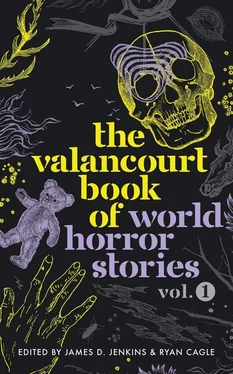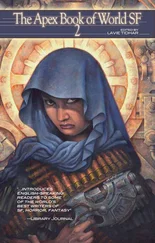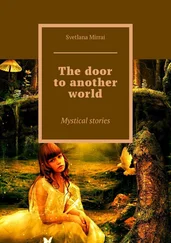Uironda?
Without thinking, he rolled down his window and was struck by a warm wind that smelled of decay. He gasped for breath. He wondered what the all-pervading darkness outside the cab would have whispered to him if only that darkness could talk. Would it have told him the story of Uironda, its genesis, its why? He hoped soon to have an answer to the swarm of questions buzzing in his skull.
The street began to climb. At first gently, a false plain that made the old Scania’s motor rev up; then still more, still more, until Ermes had the sensation of proceeding vertically.
Maybe he was.
Lost in that ditch of darkness, he wondered if concepts like direction and gravity still had any meaning. The only thing he had to do was follow the road. Go with it, like he had always done.
The lights were still there. Clearer now, closer. Red lights that cast a scarlet glow on a river or a road.
He couldn’t wait to reach his destination. He sped up.
And it was then that a noise worked its way through the awkward grumbling of the motor. It was coming from the rear cabin, the narrow space which for the past few months had been his home. Dull thuds, as if someone were throwing punches at the dividing wall or a violent struggle was being enacted. The blows ceased with a screech, a muffled wheeze, a shout.
‘Don’t do it. Ermes, stop, pleeeeeasehelpussssssss!’
Ermes was about to stop the truck when the headlights illuminated a road sign, the first he’d seen since he had emerged from the storm.
WELCOME TO UIRONDA
A hundred meters further on the street forked to the left. The Scania, as if impelled by an invisible force, took the junction without Ermes’ having to turn the steering wheel. The wheels started to vibrate as the truck tackled a sharp bend overlooking a sea of darkness; for a moment it seemed that the vehicle had tilted forty-five degrees toward the passenger side, so much that Ermes had to hang on to the wheel with all his strength. Finally, with a jolt, the old Scania stabilized and emerged from the curve spitting smoke in a deafening scream of pistons.
And it appeared.
Beyond the windshield.
Ermes found it before him all of a sudden.
Glistening, ruthless, dead.
Uironda.
The tires whistled on the asphalt, and the truck came to a stop a few hundred meters from the city walls.
Immense pinkish walls, from which a tepid wind of death blew.
The trucker got down from the cab, advancing towards the outskirts of the city-mirage with watery eyes and gaping mouth.
It wasn’t like Roby, the old trucker, had described it so many years earlier.
No one who had died on the road, no architecture of sheet metal and cement.
At least, not for him.
For him, Uironda was flesh and torment. A colossal error – the final one – born of obsession, of the disintegration of that little he had managed to create in his existence.
It took him long minutes to be able to embrace and comprehend the vastness and complexity of the vision, to identify the individual parts of it.
From enormous, heinous acts derive enormous, heinous hells.
At first he took in the minor details, if you could say that about thresholds and structures that were dozens of meters high: a nostril, a lip like a slimy snail, an ear. Afterwards, stepping back, trying to observe the panorama in its entirety, like an explorer who for the first time finds himself before an immense mountain chain, he had a fleeting view of the whole.
Buttocks and legs, bellies and ribs, forearms and hands turned into plains, plateaus, hills, mountains. Hairs like alien trees, wrinkles like streets, blood like rivers.
Everywhere, in the skin, destruction. Bare structures of tormented, lacerated epidermis, torn muscles, disarticulated joints. Immense wounds that had become doorways, gashes made into windows, bluish bruises like the mosaics of archaic, forgotten temples.
His Uironda.
Two colossal bodies entwined in a last embrace of blood, disbelief and pain, a frozen anatomical city on the autopsy table of final understanding.
The bodies of a woman and a child.
Ermes screamed. That scream did not express fear or remorse. Simply astonishment, as every doubt left him, as he understood and remembered. He distinguished a hand the size of a cathedral raised towards the sky, manicured yellow-painted nails the size of whales. Pinkish hills of battered breasts, the dark portal of a navel.
Far off blazed what at first had seemed to him a surreal field of red-tinted grain. The stems waved in the hot wind, pungent with decay.
Hair so red that it called to mind a violent sunset.
The childish mouth half-closed in a vain attempt to escape the crushing asphyxiation.
Simone.
Ermes wandered a long time in the territories of Uironda. He considered the gigantic rosette of a neck without a head, separated from the body in a rage of senseless violence and thirst for vengeance.
Daniela. Oh, Daniela, I’m sorry.
The two windows of cerulean blue eyes in a face as large as Notre Dame.
He slipped into each of the city’s orifices, under teeth archways and eyebrow columns; he passed through aisles of mucous membranes and caverns encrusted with earwax, his feet making squishy sounds in the ever-present crimson puddles.
He smelled the wounds and the cuts, where the knife had performed the martyrdom that no father and husband should ever carry out, he passed his trembling hands over the unusable tubes of the severed veins, stared crying at the buttresses of the vagina surmounted by the unusable altar of the clitoris. He heard the death rattle of nerve endings beyond repair.
When he was too tired to go on, Ermes Lenzi lay down under the shadow cast by Daniela’s severed head, on a mattress of hair half-covered in brain matter, contemplating the dark sky that was lit up by the blood of Uironda.
He lit the last remaining Camel. It smelled of smog and bodily fluids.
Simone’s glassy eyes, immense like only a child’s can be, studied him accusingly from the western extremity of the city-mirage that had revealed the truth to him.
My God, what did you do? My God my God my God . . .
His back sent him a lash of perverse pain.
The same pain experienced when he had crashed down on the rocks a few seconds after having jumped off the viaduct.
The rotten wind ceased to blow.
The bloody fluorescence of Uironda dimmed like embers from a forgotten bonfire.
Not much time passed before Ermes Lenzi plunged into a dreamless sleep, the last Camel still clenched between his fingers.
And as his eyelids closed, while the motionless Uironda embraced him like an authoritarian and terrible mother, the trucker knew that the city, with its load of hells and remorse, would be there waiting for him when he awoke.
Glistening, ruthless, dead.
For eternity.
Translated from the Italian by James D. Jenkins
Pilar Pedraza
MATER TENEBRARUM
When we asked horror fans from Spain which Spanish writers should be included in an anthology of the world’s best horror stories, one name came up again and again: Pilar Pedraza . Pedraza ( b. 1951) is a film professor at the University of Valencia, who over the past 35 years has also produced an impressive oeuvre of fiction, including both novels and short stories. Curiously, although Pedraza is well known to horror readers in her own country, where she frequently features in anthologies, and though there exists a book-length study in English of her work, Kay Pritchett’s Dark Assemblages: Pilar Pedraza and the Gothic Story of Development (2015) , none of the author’s work has previously appeared in an English translation. ‘Mater Tenebrarum’ ( the title is Latin for ‘Mother of Darkness’ ) is probably Pedraza’s best-known story; like much of her work it is a very Gothic tale, peopled with horror fiction mainstays like witches and vampires, and featuring her trademark blend of horror and macabre humor.
Читать дальше











